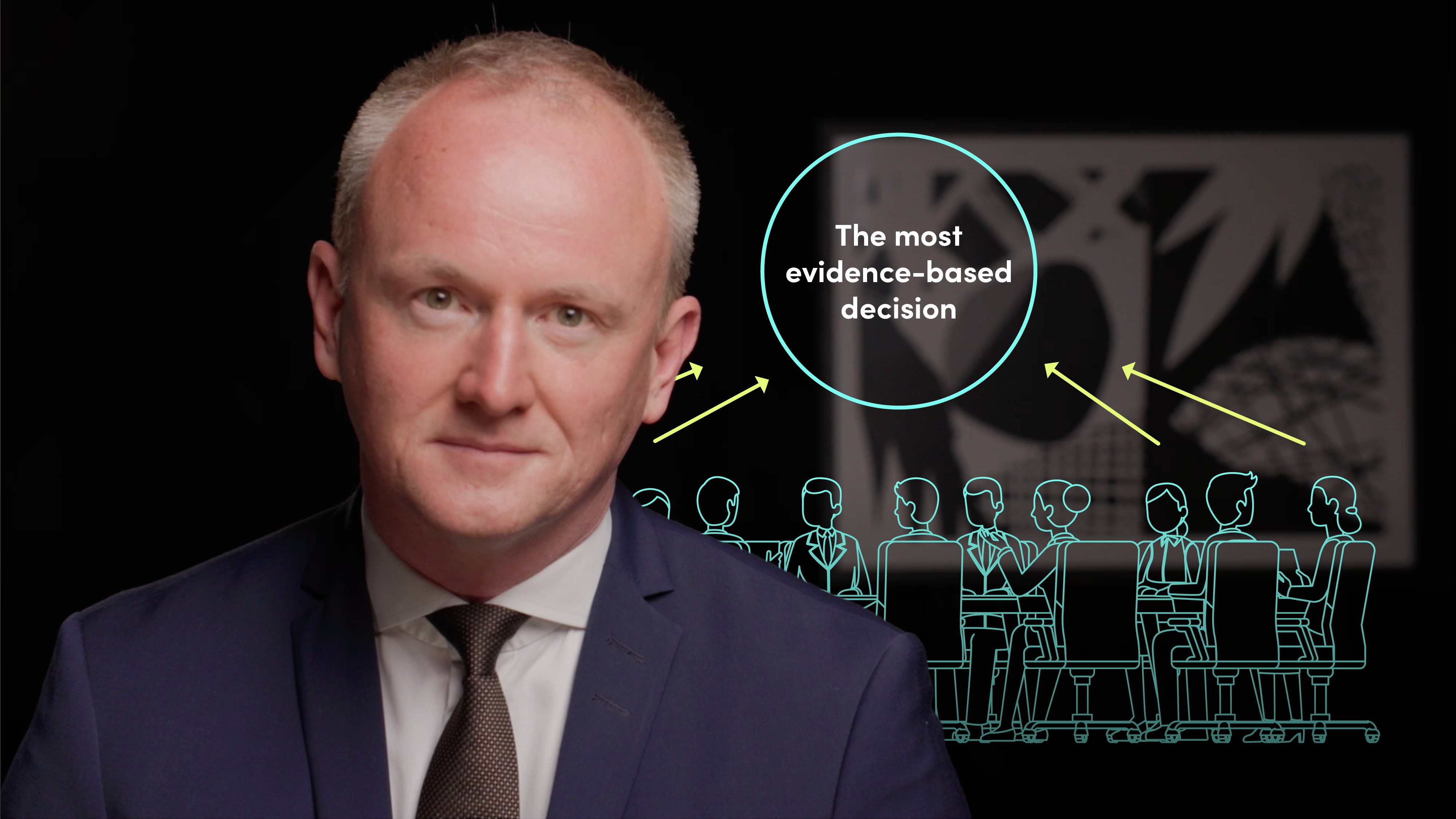
How To Form Optimal Investment Teams

Markus Schuller
25 years: Asset management
Teamwork makes the dream work. But this is only the case when the team is properly designed and managed. Join Markus Schuller as he explores how to form optimal investment teams.
Teamwork makes the dream work. But this is only the case when the team is properly designed and managed. Join Markus Schuller as he explores how to form optimal investment teams.
Subscribe to watch
Access this and all of the content on our platform by signing up for a 7-day free trial.

How To Form Optimal Investment Teams
15 mins 11 secs
Key learning objectives:
Define cognitive diversity
Learn what makes a high-performance investment team
Understand the difficulties forming a high-performance investment team
Identify 5 hacks for team collaboration
Overview:
Investment committees are expected to utilise the competencies of their participants in order to make the most informed investment decisions possible. Unfortunately, this purpose is rarely met, as teams are susceptible to group biases, conflicts, or formalities - leading to poor quality investment decisions. When it comes to decision-making, cognitive diversity is vital. A work context characterised by psychological safety, trust and openness towards different ideas is one where great things can be achieved. To achieve the optimal investment teams it’s important to remember five practical design hacks for team collaboration: leadership, simple rules, incentives, accountability and relationship quality.
Subscribe to watch
Access this and all of the content on our platform by signing up for a 7-day free trial.
What is cognitive diversity?
Cognitive diversity means including a variety of individuals with different thought patterns, ideas, problem-solving methods and mental perspectives in your pool of talent. It is the inclusion of individuals who have unique ways of thinking and acting. This means that more perspectives are being brought to the table. Gender and socio-demographic factors can be an indicator for this kind of diversity, but not necessarily a reliable one.
How can you measure cognitive diversity?
1. A context characterised by psychological safety, trust and openness towards different ideas is one where great things can be achieved.
2. The antidote to groupthink involves a cognitively diverse team, placed in an environment where curiosity, respect and independent, and critical views are tolerated and valued.
3. Diversely thinking individuals, who challenge the status quo and yet are still able to work as a team with others towards a common goal.
4. Individuals must be led and managed accordingly. The team leader should ideally be the one best suited for the task, based on their experience, background and expectations, and perhaps especially in regard to professional commitment, their work ethics and ability to prioritise.
5. Most complex tasks require a team effort. Team members will, in addition to knowing their own role inside and out, also have to master certain aspects of the other roles being performed around them. Doing so will ensure the adaptability and flexibility of the group. Cognitive diversity in teams can be measured through established qualitative and quantitative methodologies. Maximise this diversity when configuring your team with a group of high performers.
What makes a high-performance investment team?
High-performance investment teams are able and willing to switch between operational and strategic angles in their qualitative and quantitative adaptation of the investment process. This way, they can more comprehensively assess and decide as to whether parts of the investment process require adaptation. In order to enable a group of people to do this, we have to navigate the focus of the team away from rigidity and towards directed change - where flexible adaptation leads to a prime incorporation of the profit and impact motive.
This means deciding how and when to implement quantitative tools, such as algorithms, big data analysis, neural networks etc, which routines to establish in order to minimise individual and team biases, along with how to embed clients in the learning process via expectation management techniques.
What are the difficulties with forming a high-performance investment team?
Adapting an investment process towards a prime integration of the profit and impact motive comes with different levels of resistance to change. This is an expression of the resistance on an individual level to the new and the different. The less personal the aspect to be streamlined in an investment process however, the lower the individual (and therefore organisational) resistance will be.
A high-performance investment team must be able to work on investment process adaptations of both high and low resistance levels. To transform sluggish investment teams into high-performance ones, management must be willing and capable of enabling the individuals to be at their best, while at the same time creating a team setting which utilises this individual excellence in building a collective understanding of market complexity.
What are the 5 hacks for team collaboration?
1. Leadership matters
The chief investment officer should lead by example, working alongside the rest of the firm’s management to provide a safe space in which to operate. Management needs to be willing and able to promote transparency, accountability and fairness.
2. Simple rules matter
It is crucial that team members agree on the rules put in place for how to perform critical appraisals when comparing evidence. If everyone is on the same page in relation to this, then there will be little or no chance of confusion during the process.
3. Incentives matter
Incentivise your team through their respective skin in the game. This is a marathon and not a sprint. You should encourage your team members to act as constructive sounding boards. The ideal person likes you, but does not care about your feelings - and will therefore be honest with you.
4. Accountability matters
Investment committees are normally built to be compliant and tick boxes. Support teams by measuring the quality of their decisions and not only their compliance with formalities.
5. Relationship quality matters
A good deal of the time, it is the loudest, the most dominant and the most extroverted person who wins the argument. This also means that good (or even the best) ideas and solutions are missed out on. Competition is good but toxic behaviour is damaging. It is important to identify toxic team members and then to replace them.
Subscribe to watch
Access this and all of the content on our platform by signing up for a 7-day free trial.
There are no available Videos from "Markus Schuller"






























